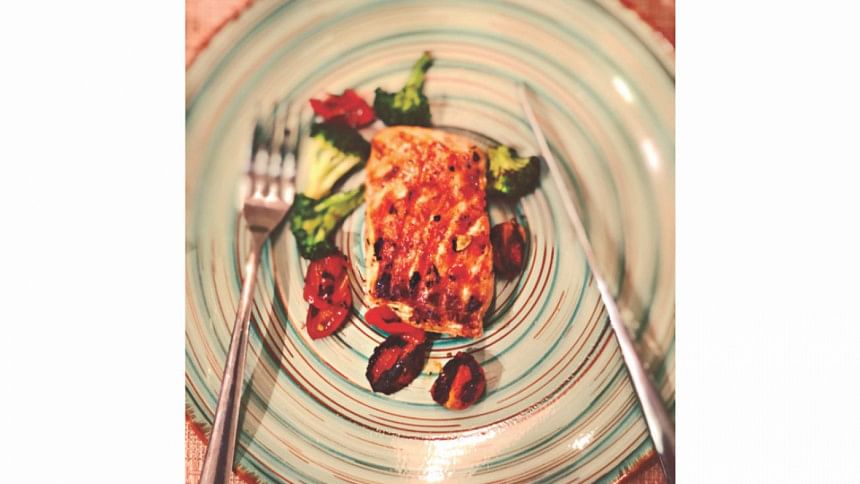How to avoid overeating in Ramadan?

Ramadan is not only the month for spiritual cleansing, but also rejuvenating the mind and body. With that said, it's not unlikely to develop unhealthy habits during the month. Yes, the mouth-watering jilapis and delicious begunis are quite hard to resist after a whole day of fasting! But not being able to beat temptation can make you overeat or binge on unhealthy food. This can have serious drawbacks on your health, such as abdominal pain, drowsiness, gastritis, and so on.
Never miss sehri
The late night meal can provide energy for longer and thus reduce your cravings at iftar. Make sure you eat proteins such as meat or lentils, and complex carbohydrates like beans to keep you energised throughout the day. Wash it down with fresh juice or try a piece of fruit as dessert.
Opt for smaller portions
By the time you hear the call for prayers, your empty stomach makes you want to pack your plate with as much food as possible. Don't listen! Instead, take smaller portions onto your plate and eat slowly. Your stomach will actually be content with much lesser than you anticipated! This way, you are less likely to force leftover food into a content stomach.
Have iftar at home
Once again, when your favourite restaurants all across town shower you with unlimited offers and mouth-watering deals, it's hard to resist going out for iftar. Not only are the meals heavy, but they are often too oily and unhealthy. Instead, opt for home-cooked food. The best way to prevent overeating is by planning iftar meals in advance. Break your fast with something light, such as dates. Follow up with water, milk or milkshakes to stay hydrated.

 For all latest news, follow The Daily Star's Google News channel.
For all latest news, follow The Daily Star's Google News channel. 








Comments